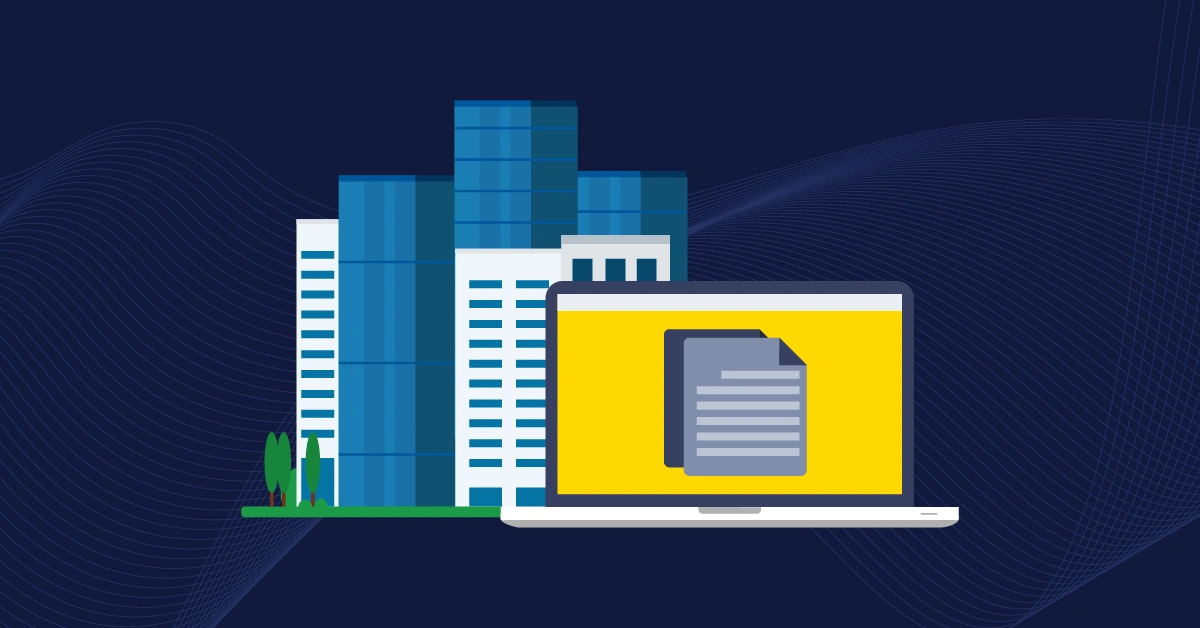
GSD
Top 10 Enterprise CMS Solutions to Consider in 2024
Posted by Deborah Emeni on April 4, 2024
Are you struggling to manage large volumes of content across your organization? Luckily, you’ve come to the right place!
Many large enterprises, with their complex workflows and vast content needs, recognize the crucial role of content management in their brand's success. Statistics show a direct correlation between content marketing and increased sales leads. Consistency across all touchpoints is key to meeting customer expectations and avoiding negative impacts on your business.
However, traditional content management systems (CMS) often struggle to handle the sheer volume, diverse formats, and regulatory requirements of enterprise content. This is where an enterprise CMS comes in to facilitate omnichannel experiences.
Below, we'll highlight the top 10 enterprise CMS solutions for 2024 and offer insights into their features to help you make tailored decisions for your organization's needs.
Table of contents
What is an enterprise CMS?
An enterprise CMS is specialized software designed to assist large businesses in creating, organizing, and publishing digital content across various platforms. What distinguishes it from a regular CMS? Unlike smaller-scale platforms, an enterprise CMS solution is specifically tailored to meet the needs of large enterprise-level marketing and content teams.
Enterprise CMSs excel at managing complex content structures, streamlining collaboration across workflows, facilitating omnichannel delivery, and prioritizing robust security features to safeguard sensitive data and handle high website traffic. This focus on enterprise needs makes them ideal solutions for large-scale marketing departments and content teams searching for efficient and secure content management solutions.
Different kinds of Content Management Systems
Content Management Systems (CMSs) come in various “flavors,” each tailored to different needs and infrastructural demands. From lightweight options suitable for small businesses to robust enterprise CMSs, the choice often hinges on factors like architecture and hosting capabilities.
Let’s discuss some common types of CMSs.
By architecture
Let’s explore the types of CMSs that are categorized by architecture below:
-
Monolithic CMS: It houses all the functionalities, including content editing, database, and presentation layer, within a single codebase, which makes it ideal for simple websites.
-
Hybrid (Decoupled) CMS: It provides both the front-end presentation layer and the back-end while still separating the two components.
-
Headless CMS: It focuses solely on content management and delivery via APIs, keeping the presentation layer separate.
By hosting
Now, look at some of CMS solutions' different hosting options.
-
SaaS (Software as a Service): It is cloud-based and eliminates the need for server management.
- On-premise CMS: It is installed and runs on your servers, giving you more control over the platform and making you responsible for maintenance and security.
Note that these categories aren’t mutually exclusive. For instance, a CMS solution can be monolithic and SaaS-based, while another might be decoupled with an on-premise hosting option.
How does an enterprise CMS benefit large organizations and companies?
Over 60% of websites utilize a CMS for their online presence. However, for large organizations, a small-scale CMS might not suffice. What advantages does an enterprise CMS provide that smaller ones can't? Let's discuss these benefits below.
Flexibility and configurability
An enterprise CMS offers adaptability through integrations, automation, and customization. This flexibility enhances content creation and boosts team efficiency by adjusting workflows.
Configurability goes beyond flexibility. It empowers enterprise organizations by allowing them to tailor the CMS to their needs without worrying about conflicts or compatibility issues. Users can configure the CMS to match existing workflows, user permissions, and security protocols.
Enhanced search engine optimization (SEO)
While standard CMSs offer basic SEO tools, enterprise-level options go beyond meta tags and structured data. They provide features like bulk editing and content tagging to optimize large content libraries and complex website structures, ultimately boosting organic traffic.
Customized workflows
In large organizations, collaboration between departments is crucial. Teams often require distinct workflows, such as approval processes or legal reviews. Customizing workflows improves collaboration and productivity.
Advanced personalization capabilities
Your organization can utilize advanced enterprise CMS platforms with built-in personalization features. These empower you to create highly targeted content and experiences, leveraging audience segmentation, user behavior data, and dynamic content rules to drive engagement, conversions, and customer loyalty.
Key features and functionality to look for when selecting an enterprise CMS
When selecting a suitable enterprise CMS, looking for the following features and functionalities is crucial.
Ease of use
Look for a user-friendly experience that integrates smoothly with existing systems, supports future technologies, and simplifies content creation and approval workflows. This enables effective collaboration and content delivery.
Scalability
As your organization grows, its website faces increased data, traffic, and content. To sustain performance, consider a CMS with features like horizontal scaling for added servers to accommodate future growth and content delivery networks (CDNs) for fast global loading times.
Multilingual support
Enterprise CMS solutions should offer robust multilingual support to cater to diverse audiences. This ensures your content strategy can effectively reach a global market. Consider a CMS with built-in AI integration for seamless translation workflows, like ButterCMS's integration with DeepL, a powerful machine translation service.
Extensibility through integrations
Look for a CMS that seamlessly connects with existing marketing tools like CRMs and analytics platforms, email marketing services, and social media management dashboards. This creates a unified ecosystem where content, customer data, and performance insights flow freely, empowering data-driven marketing strategies and facilitating automated workflows and content delivery across various marketing channels.
Flexible content management capabilities
An enterprise CMS should be highly adaptable to manage your organization's diverse digital assets. This includes easy creation, editing, and organization of various content types. Additionally, consider how effectively the system facilitates content reuse, a crucial factor for streamlining content creation and reducing redundancy across large organizations.
Seamless omnichannel content distribution
An enterprise CMS should facilitate content delivery across multiple channels (websites, mobile apps, social media) from a single source, which optimizes content creation workflows and ensures consistency across all channels. Additionally, the system should offer robust multi-platform content rendering capabilities. This provides optimized content presentation and user experience for customers on any platform.
Security and advanced user management
Large organizations with diverse user needs and sensitive data require a CMS with end-to-end security features. Look for a system with granular permission control through user groups and roles, allowing for features like department-specific access or time-bound permissions. Additionally, two-factor authentication and activity logging further enhance system security and compliance.
Customer support
Reliable and responsive technical support is essential for complex websites where content is essential to business operations. Look for a CMS provider offering enterprise support that goes beyond basic assistance, providing expertise in integrations, security, and performance optimization that can handle the scale and complexity of enterprise websites.
Top 10 enterprise CMS platforms in 2024
Now, let's explore some of the leading enterprise CMS platforms for 2024.
ButterCMS
ButterCMS is a user-friendly SaaS solution tailored for enterprise content management. As a headless CMS, it provides a backend-only solution that seamlessly integrates with any front end, offering developers a robust API for content management and delivery. With features like multisite multi-environment support and one-click migrations, ButterCMS directly improves content creation speed and team collaboration.
Pros of ButterCMS
-
Ease of use: ButterCMS stands out for its user-friendly interface, which minimizes onboarding time and simplifies content creation for large, global teams.
-
Scalable API for complex integrations: ButterCMS handles high-volume content delivery and complex integrations for enterprise websites and applications.
-
Robust version control for secure collaboration: ButterCMS empowers teams to collaborate securely with version control and rollback options.
-
Global Content Delivery Network (CDN) for fast performance: ButterCMS's global CDN ensures fast content delivery, enhancing user experience and SEO for enterprise websites.
Cons of ButterCMS
-
Requires developer expertise for front-end implementation.
-
Needs customization for complex functionalities like real-time chat or user authentication.
ButterCMS enterprise pricing
ButterCMS provides an “enterprise + Agency” plan that offers a custom price tailored to your organization's needs. It supports these features: Workflows, Multiple Environments, Multisite, Write API, Locale Permissions, Video Support, and customizable user roles based on your requests.
Sitecore Experience Platform
Sitecore is an experience platform (XP) delivered as a SaaS platform that offers features like A/B testing, real-time analytics, and automated marketing workflows for targeted content delivery and personalization.
Pros of Sitecore
-
Scalable architecture: It handles large content volumes and high traffic through its scalable and API-driven infrastructure.
-
Omnichannel experience management: Through its centralized content repository, it manages content delivery across websites, mobile apps, and other digital touchpoints.
- Advanced personalization: It delivers targeted content experiences to individual users by leveraging customer data that is collected natively, such as browsing history and preferences.
Cons of Sitecore
-
It requires significant development resources for full customization.
-
It has a steep learning curve due to its number of features.
-
It has a higher cost than the other CMSs.
Sitecore enterprise pricing
Sitecore offers an enterprise subscription plan with customized pricing based on your organization's needs. This plan supports up to 240 million visits annually and includes Sitecore JSS and Sitecore Connect for Salesforce CRM by default.
Umbraco
Umbraco is an open-source CMS built on Microsoft's .NET framework. Unlike many SaaS offerings, it provides complete control and flexibility for developers. Its modular architecture allows seamless integration with popular .NET tools and libraries.
Pros of Umbraco
-
Focuses on user experience: Umbraco prioritizes a user-friendly editing interface for efficient content management by large teams.
-
Cloud-agnostic deployment: Enables enterprises to choose preferred cloud providers for scalability and cost efficiency, adapting to changing business needs.
-
Open-source model: Offers full control and customization, allowing CMS to be tailored to unique business requirements.
Cons of Umbraco
-
Its ongoing maintenance and security responsibility falls on the user.
-
It requires development expertise for setup and customization.
-
Requires third-party integrations for advanced marketing automation.
Umbraco enterprise pricing
Umbraco offers an enterprise plan at a custom price for a yearly subscription, which is recommended for business-critical projects requiring high levels of customization. This plan provides support and SLAs tailored to your specific needs.
HubSpot CMS Hub
HubSpot CMS Hub is a SaaS CMS built for HubSpot users. It seamlessly integrates CRM and marketing tools, allowing centralized content management and data-driven campaigns.
Pros of HubSpot CMS Hub
-
Enterprise-grade landing page builder: HubSpot CMS empowers enterprises to create landing pages at scale with its drag-and-drop interface.
-
Built-in SEO tools for large websites: HubSpot CMS equips enterprises with on-platform SEO tools to optimize website content for search visibility.
-
Seamless marketing and sales for complex workflows: HubSpot CMS integrates seamlessly with existing HubSpot solutions, ensuring efficient content creation and management within intricate enterprise workflows.
Cons of HubSpot CMS Hub
-
It has scalability limitations for large and complex websites.
-
Fewer design options for highly customized websites.
-
Its tight integration with the HubSpot ecosystem might lock users in.
HubSpot enterprise pricing
HubSpot offers an enterprise plan with a price of $1200 per month. It includes 5 seats; additional seats start at $75 per month. It includes and supports features like memberships, custom objects, multisite, adaptive testing, and web apps.
WordPress
WordPress is an open-source, self-hosted platform that offers a versatile plugin ecosystem for extending core functionality and customization. Unlike SaaS solutions, WordPress gives enterprises complete control over their data and hosting environment.
Pros of WordPress
-
User-friendly interface: WordPress's user-friendly interface makes content management tasks easy.
-
Extensive plugin selection: Its vast array of plugins offers scalable solutions for enterprise needs.
-
Cost-effective solution: WordPress is freely downloadable and modifiable, minimizing overhead costs associated with proprietary CMS platforms.
Cons of WordPress
-
It relies on users to maintain security through updates and patching.
-
It lacks features for advanced workflow management and user permission control for large teams.
-
It may struggle with high-traffic websites and complex content structures.
-
It has a traditional monolithic architecture, which can be difficult to scale and maintain for large enterprises.
WordPress enterprise pricing
WordPress's enterprise plan starts at $25,000 per year, and it delivers unmatched performance with the highest security standards on the enterprise content platform.
Adobe Experience Cloud
Adobe Experience Cloud is a SaaS platform offering content management, marketing automation, analytics, and personalization features. It centralizes content creation, manages campaigns, analyzes customer behavior, and helps users deliver targeted experiences.
Pros of Adobe Experience Cloud
-
AI-powered personalization: AI personalizes content at scale, boosting engagement and conversions for even the largest audiences.
-
Unified omnichannel experience: A consistent brand experience across all channels improves customer satisfaction and loyalty.
-
Automated marketing workflows: Integrating with Adobe Marketing Cloud allows enterprises to automate marketing tasks, saving time and resources.
Cons of Adobe Experience Cloud
-
This CMS is more expensive than others.
-
Tight integration with the Adobe ecosystem can limit flexibility.
-
The extensive features require significant user training to master.
Adobe Experience Cloud enterprise pricing
Adobe Experience Cloud offers several packages, including real-time CDP, customer journey analytics, experience manager site, and more for businesses of all sizes, allowing you to get customized pricing.
Magento (Now Adobe Commerce)
Magento (now known as Adobe Commerce) is a SaaS eCommerce platform for businesses, offering robust features specifically designed to manage online stores, product catalogs, and customer interactions.
Pros of Magento
-
B2B functionality: It offers dedicated tools for managing complex B2B workflows, including custom pricing, quotes, and credit accounts for enterprises with B2B operations.
-
Scalability: It efficiently handles high-traffic volumes and complex product catalogs through caching, load balancing, and a modular architecture.
-
E-commerce functionalities: Provides a comprehensive toolkit containing firewalls, user permissions, coupons, and more for unified security management, promotions, and product management, saving time and resources.
Cons of Magento
-
It requires development expertise for setup, customization, and integration with other systems
-
It focuses primarily on e-commerce functionalities.
-
While the core platform is open-source, ongoing costs for maintenance, hosting, and any necessary customizations can add up quickly.
Magento enterprise pricing
Magento (Adobe Commerce) offers tiered enterprise pricing, typically starting around $22,000 annually and scaling based on your sales volume and required features.
Drupal
Drupal is an open-source CMS with a modular architecture. This means it uses self-contained modules for features and customization. Drupal offers self-hosted installation for greater control.
Pros of Drupal
-
Highly customizable: Offers a vast array of modules and themes, allowing for extensive customization to fit your enterprise's specific needs.
-
Multisite management: Easily creates and manages multiple websites from a single codebase.
-
Multilingual capabilities: Effortlessly manages and delivers content in multiple languages for global audiences.
Cons of Drupal
-
It relies on modules to extend functionality, which can add complexity.
-
Its users are responsible for security updates, ongoing maintenance and bug fixes.
-
It requires more technical expertise for its setup, customization, and maintenance.
Drupal enterprise pricing
Drupal is free, but enterprise use requires custom quotes due to hosting, security, and potential development needs.
Sitefinity
Sitefinity is a user-friendly, NET-based content management system (CMS) hosted in the cloud (SaaS). Its pre-built integrations with marketing automation and content personalization tools empower users to create unified digital experiences without needing extensive technical expertise.
Pros of Sitefinity
-
Faster development: Sitefinity's pre-built components and low-code environment accelerate enterprise development, saving development teams time and resources.
-
Drag-and-drop functionality: It allows non-technical enterprise users to contribute to website design and content creation, fostering wider team participation.
- Marketing automation features: Sitefinity's built-in marketing automation tools equip enterprises to manage email campaigns, nurture leads, and significantly improve marketing campaign efficiency.
Cons of Sitefinity
-
Extensive customization could create dependence on Sitefinity, hindering future platform changes.
-
It can be priced higher compared to some open-source alternatives.
-
It has a small developer community compared to open-source options.
Sitefinity enterprise pricing
Sitefinity doesn't publish a specific price for its enterprise edition. Instead, the company provides custom quotes based on your organization's features and user needs. As a result, the cost will be higher to reflect the needs of enterprise clients.
M-Files
M-Files is an information management (IM) platform for enterprise content management. It focuses on workflow automation, secure information access, and document management.
Pros of M-Files
-
Security and compliance: It safeguards sensitive information through features like granular access control restricting document visibility and data encryption at rest and in transit, ensuring regulatory compliance and minimizing data breach risks for large enterprises.
-
Centralized management of complex content: It simplifies information access and collaboration across departments by establishing a centralized knowledge base for large enterprises, boosting productivity.
-
Intelligent information management: It has features for metadata management, information retrieval, and document classification that enable enterprises to find, organize, and utilize their essential information more effectively.
Cons of M-Files
-
It may not be well-suited for enterprise websites requiring extensive user-generated content or the creation and management of landing pages.
-
Due to its advanced information management features like version control, it may require more training for content creators than simpler CMS options.
-
Its pricing can be high compared to some general-purpose CMS platforms, especially for organizations that don’t require its full feature set.
M-Files enterprise pricing
M-Files offers custom quotes based on your needs, with larger deployments likely incurring higher costs.
Why you should go with a headless CMS
Choosing a headless CMS, which separates content management from presentation, allows for greater flexibility and future-proofing. With a headless CMS, you can manage content in a user-friendly interface and deliver it seamlessly to any front-end application, website, or mobile app, regardless of the technology used.
A headless CMS empowers you to build modern omnichannel experiences without being tied to a specific frontend framework. ButterCMS is a great example of a headless CMS that excels in this area. However, the benefits of a headless CMS extend beyond omnichannel experiences. For instance, a headless CMS often allows for easier integration with third-party applications and marketing automation tools, streamlining your content workflows.
Wrap up
Finally, this article has highlighted the importance of choosing the right enterprise CMS for large organizations. You explored various options, analyzing their strengths and use cases within an enterprise setting. While each platform offers unique features, headless CMS solutions like ButterCMS stand out for their flexibility and future-proofing capabilities. To see how ButterCMS stacks up against other headless solutions check out the following:
- ButterCMS vs Contentful: Key Differences You Need To Know About
- ButterCMS vs Hygraph: Key Differences You Need to Know
ButterCMS is the #1 rated Headless CMS
Related articles
Don’t miss a single post
Get our latest articles, stay updated!
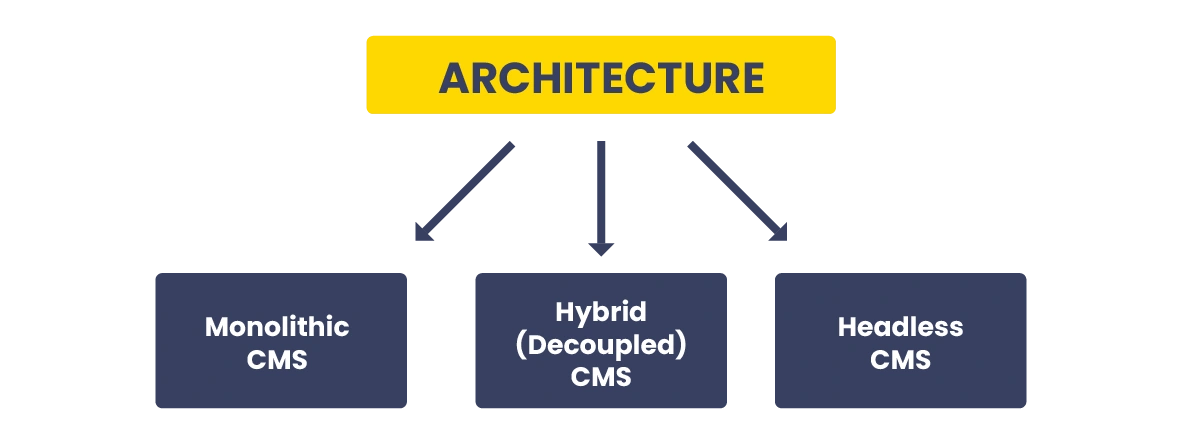
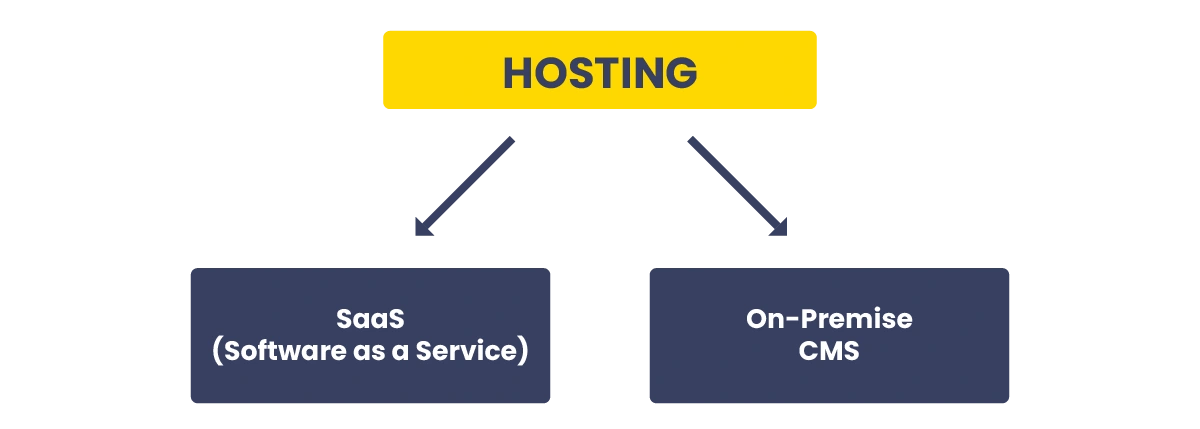

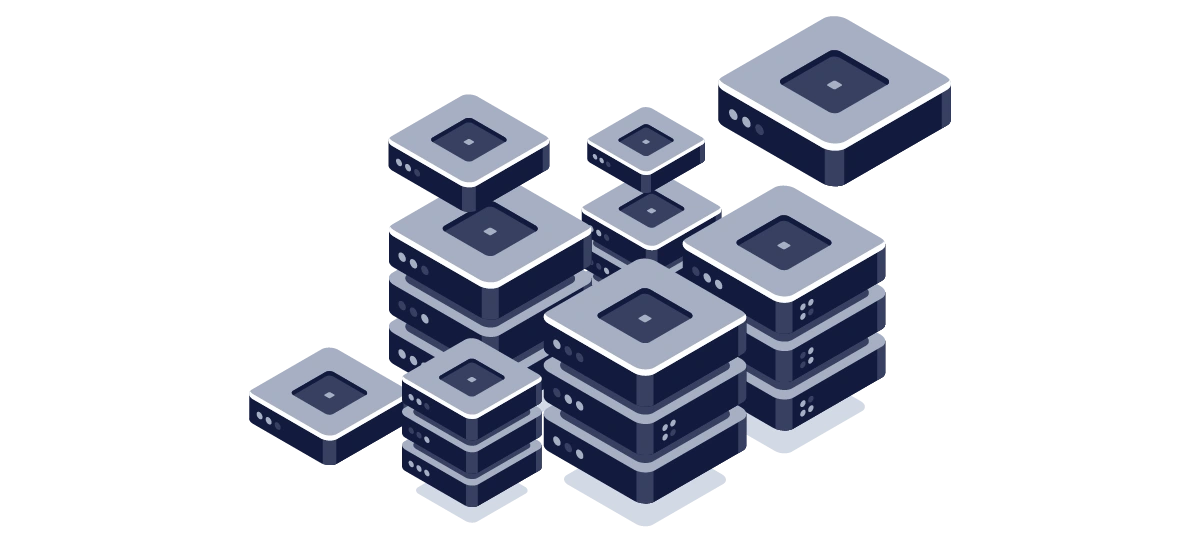
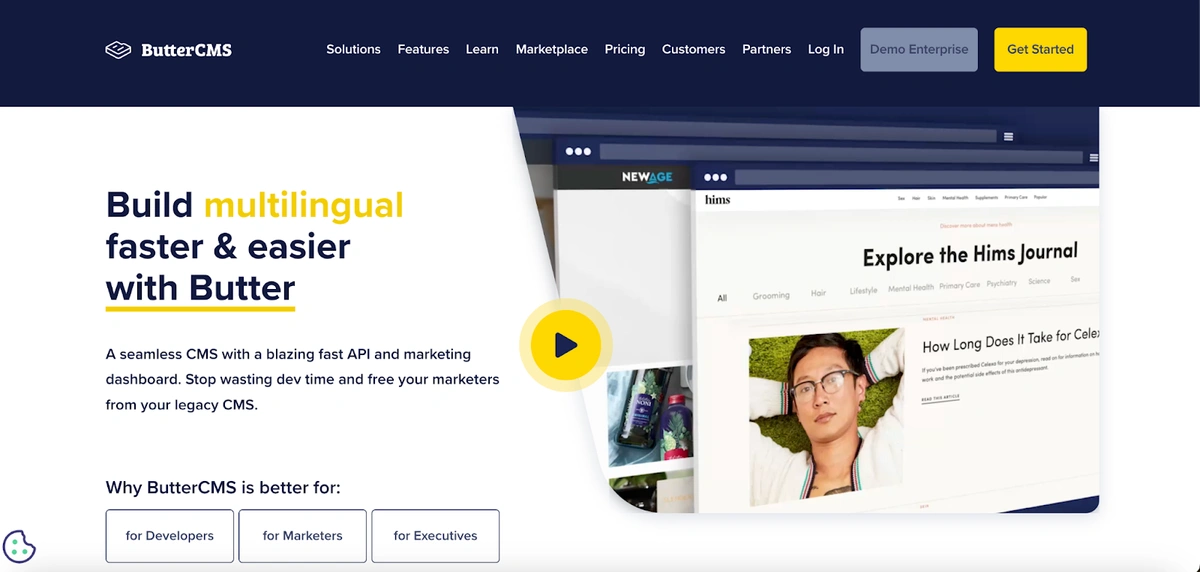
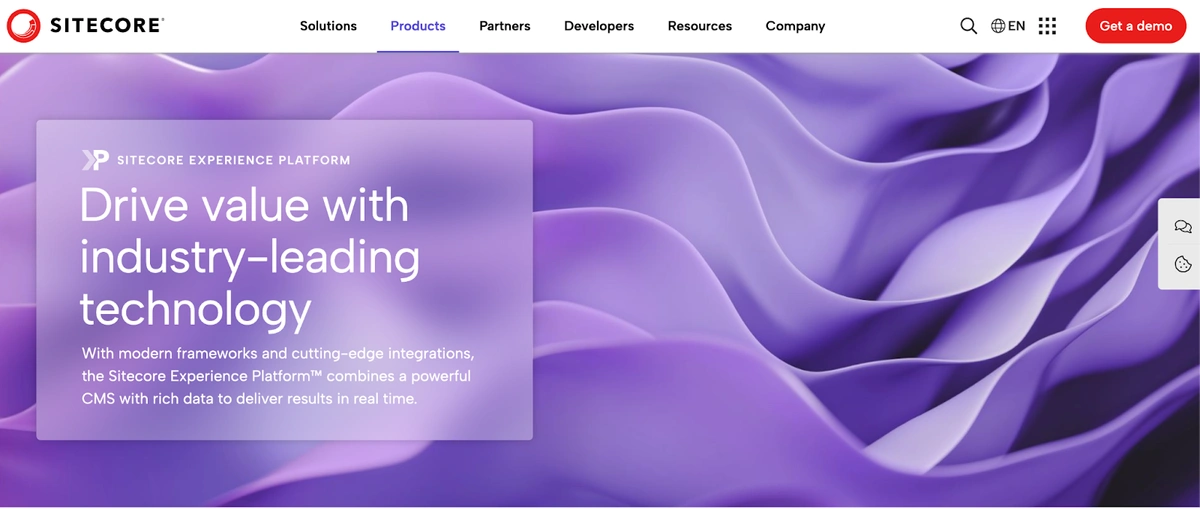
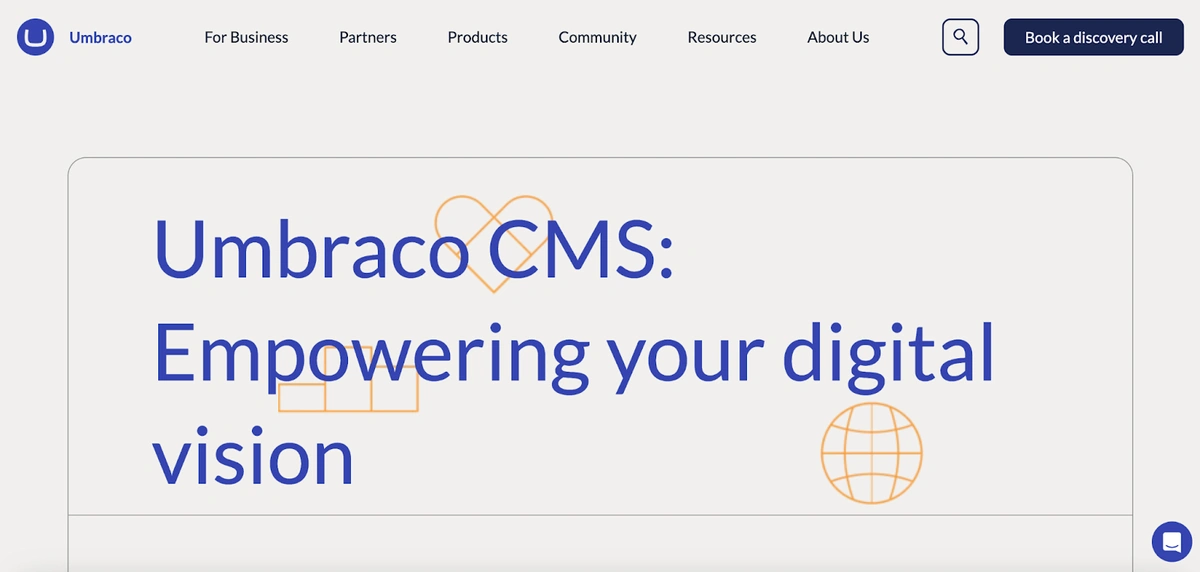
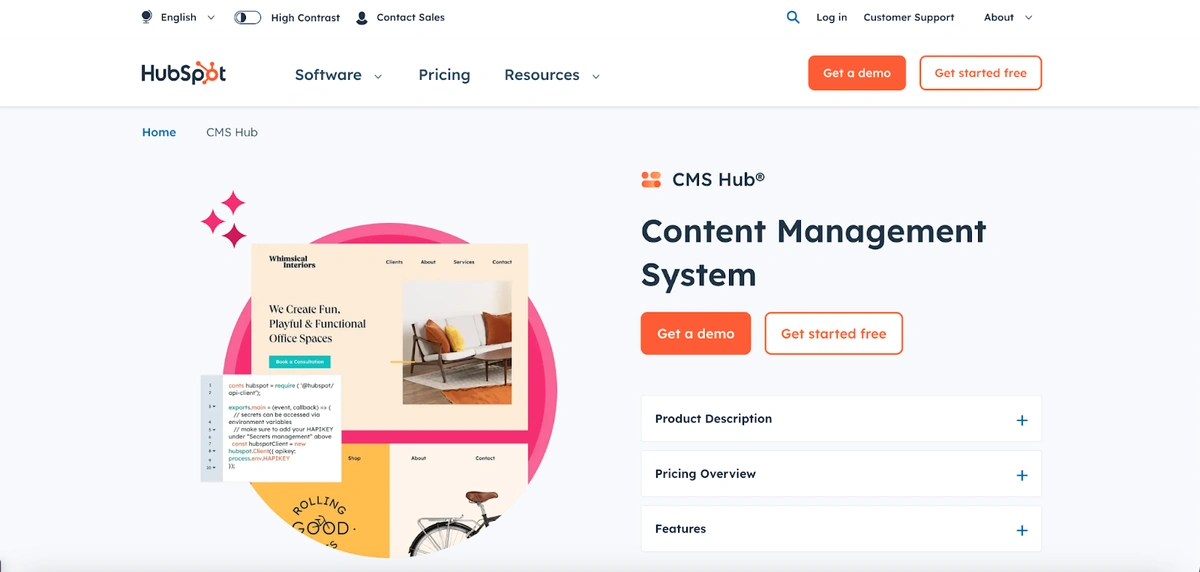
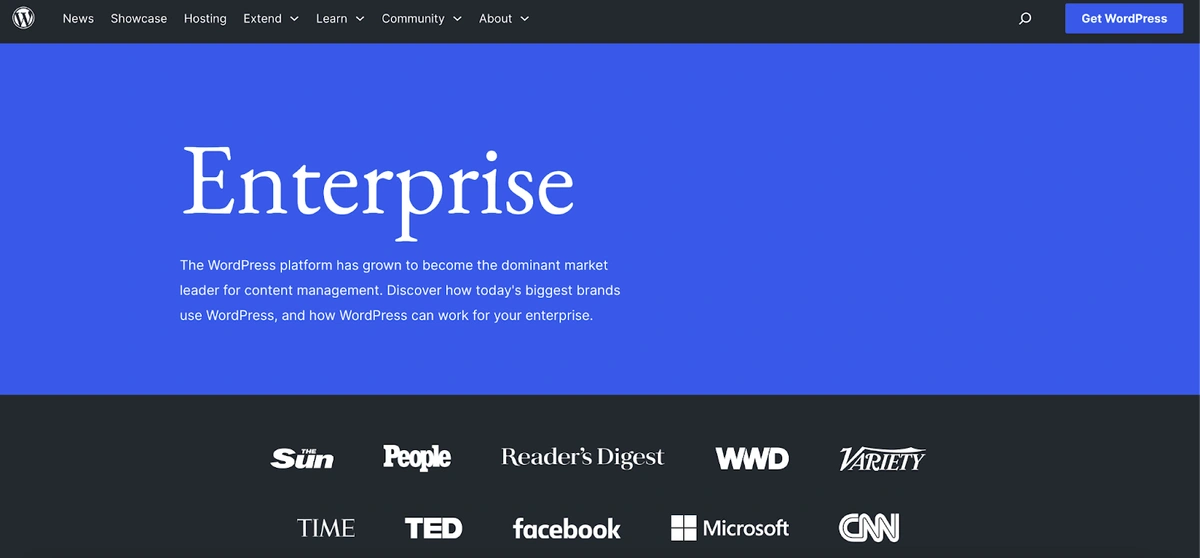
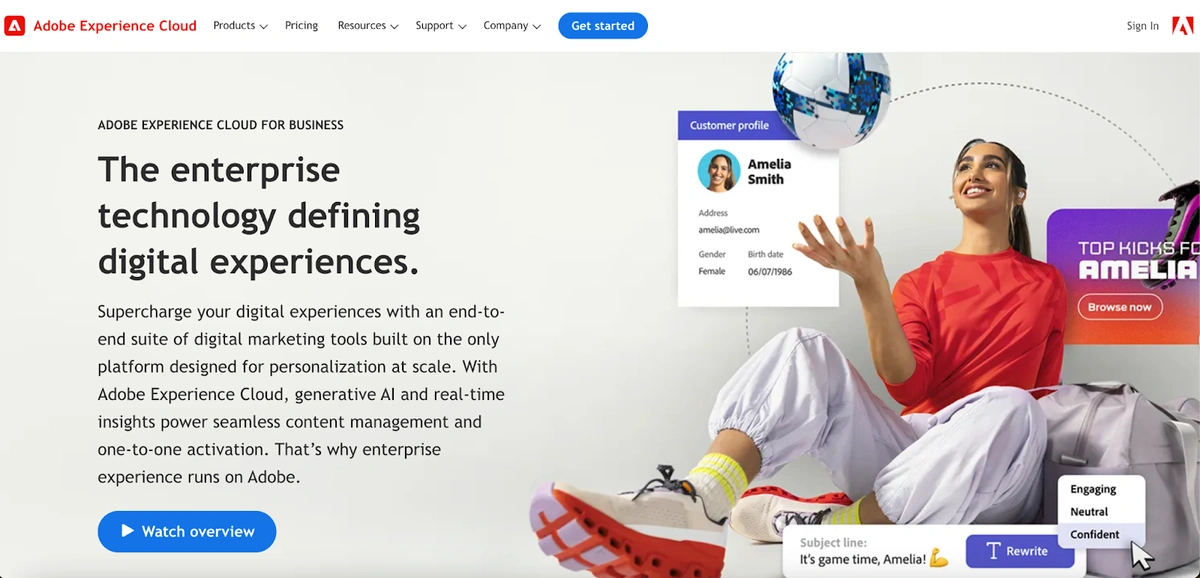
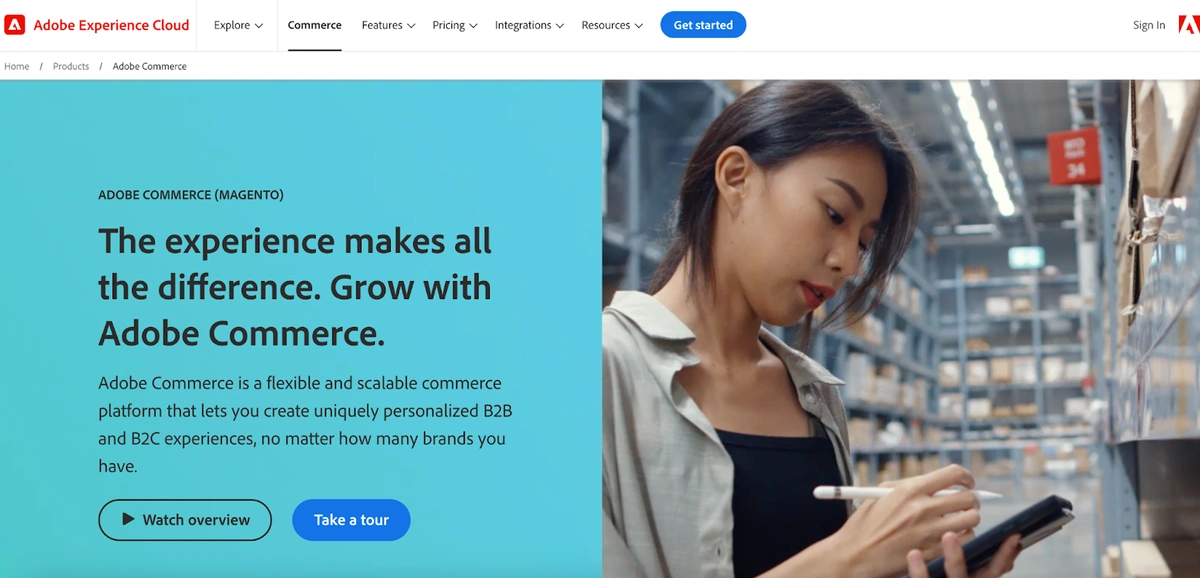
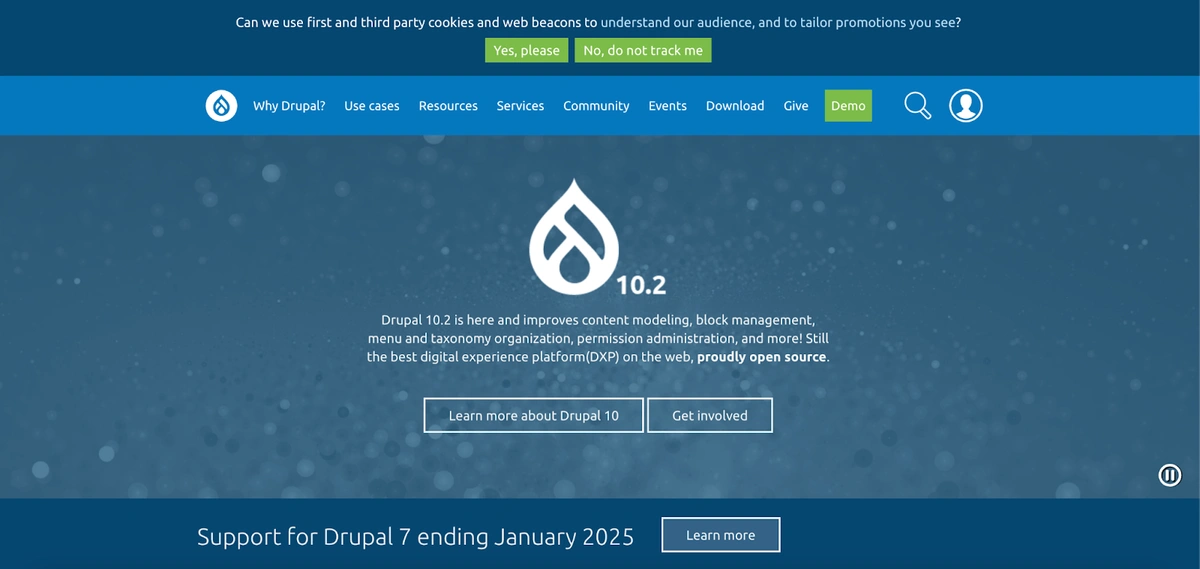
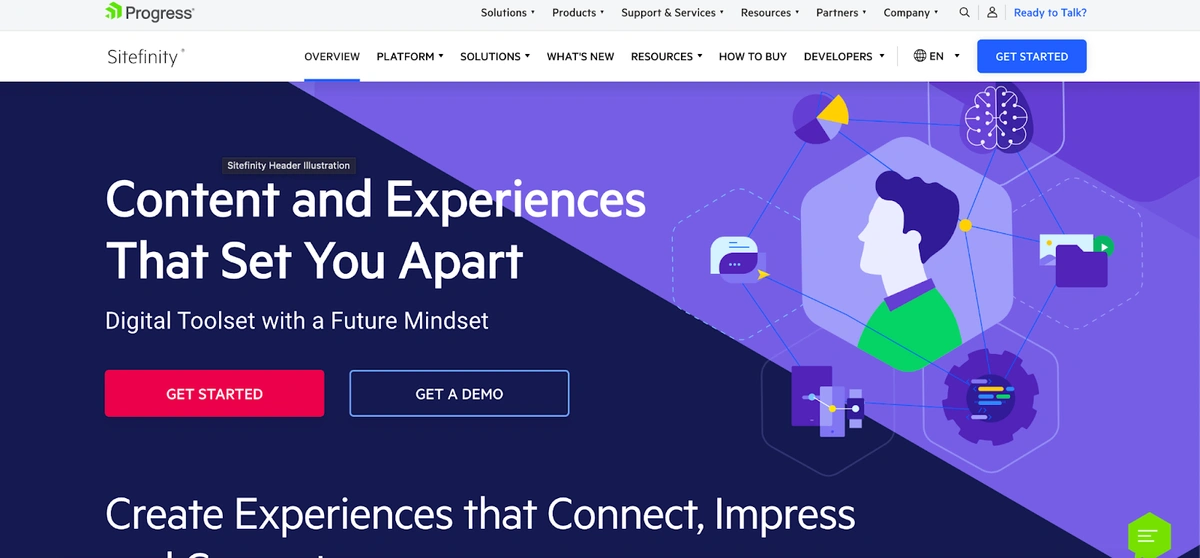
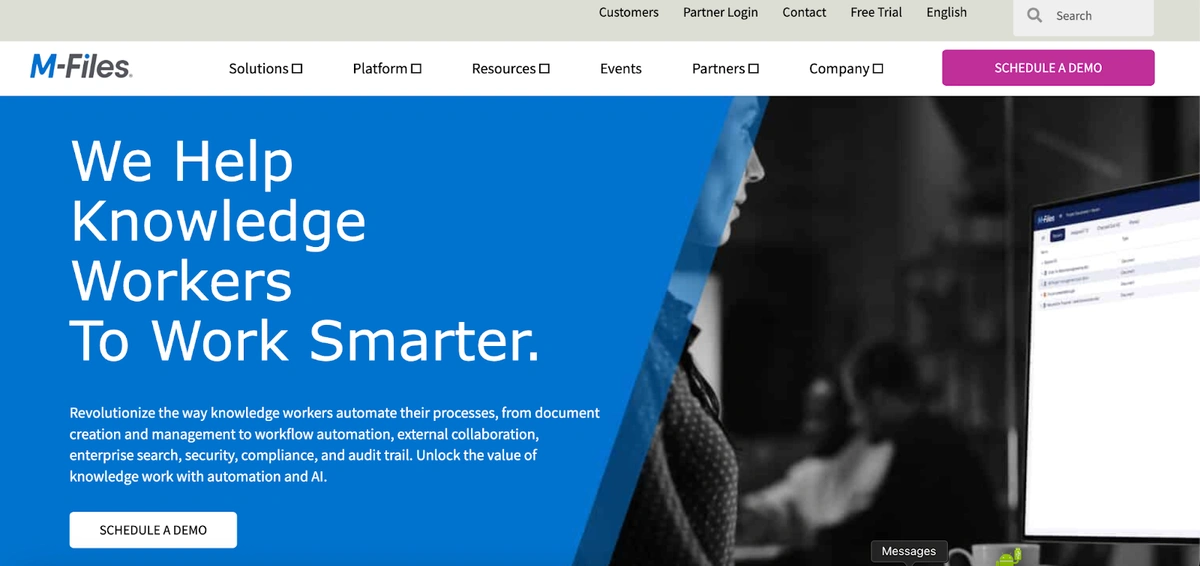

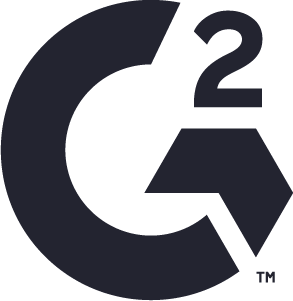











Deborah Emeni is a software developer and professional technical writer with more than three years of experience in web development.